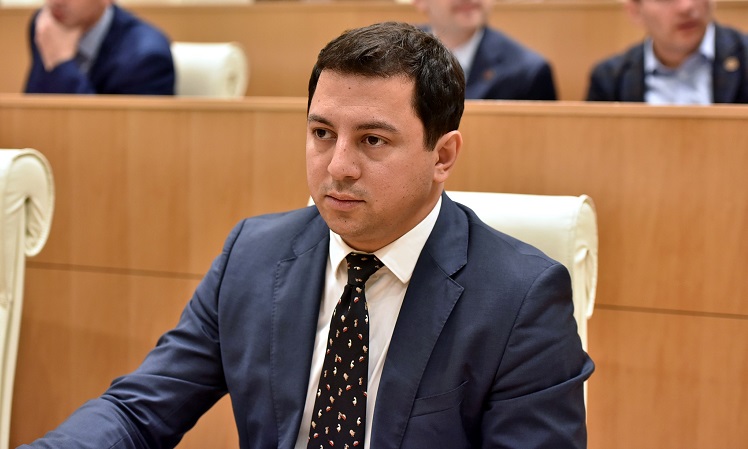Parliament Vice Speaker: “radical” opposition won’t be allowed to “undermine” Georgian judiciary, European prospects

The vote was called by the opposition in the wake of the United States Department of State’s sanctioning of four former and current Georgian judges under the visa restrictions authority earlier this month for alleged corruption. Photo: Parliament of Georgia
Archil Talakvadze, the Vice Speaker of the Georgian Parliament, on Tuesday said the “radical” part of the domestic opposition would “not be allowed” to “undermine” the country’s judiciary and European prospects, in comments after the ruling Georgian Dream party refused to register for the opposition-initiated vote on forming a Parliamentary inquiry on the domestic judiciary.
The vote was called by the opposition in the wake of the United States Department of State’s sanctioning of four former and current Georgian judges under the visa restrictions authority earlier this month for alleged corruption.
Talakvadze said the opposition United National Movement party’s initiative to create a temporary Parliamentary investigative commission into the domestic courts on the back of the sanctions did not “serve the idea of an independent and free judiciary”.
This [initiative] serves the following tasks. The first is to block the process of implementation of European recommendations and delay it, so that Georgia once again fails to receive the European Union membership candidate status”, he said in reference to last year’s decision of the European Council on only granting the country the European perspective.
“The second is to attack and put pressure on the judiciary, to somehow interfere with its independence and gain some level of control. The third is to take revenge on the judges and court that tried their political leaders for the most serious crimes”, the Vice Speaker said in reference to court cases that judged former UNM officials in cases dating back to their time in office.
Today it appeared once again that they had chosen a topic with which they could harm the process of implementation of the European recommendations. It is a political joke in itself [to claim] that UNM, by any form, is fighting for the independence and freedom of the judiciary”, he concluded.
The State Department’s decision on sanctions alleged Irakli Shengelia, Mikheil Chinchaladze, Levan Murusidze and Valerian Tsertsvadze had “abused their positions as court chairmen and members of Georgia’s High Council of Justice, undermining the rule of law and the public’s faith in Georgia’s judicial system”.
The decision has been met by criticism from Georgian Government officials, while the domestic opposition has claimed it highlights the alleged corruption in the domestic judiciary.
 Tweet
Tweet  Share
Share